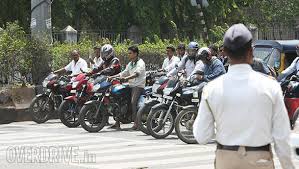
The Motor Vehicles (Amendment) Bill, which was approved by the Cabinet and introduced in the Lok Sabha in the first week of August, is set to make several noteworthy changes to the existing Motor Vehicles Act, 1988, once it gets the nod.
The Bill introduced by the Ministry of Road Transport " Highways has made amendments to over 60 sections of the Act and introduced an entire new chapter (Chapter XI) to simplify the claim and processing of third-party insurance claims.
Given that most provisions are aimed at improving road transport and safety for commuters, users need to take note of the key amendments.
Easier Documentation
Have you just begun driving classes, and will be applying for a licence soon? The new Act, when it comes into force, may make the process far simpler.
By amending Section 8 of the Motor Vehicles Act 1988, the Bill seeks to permit electronic issuance of learner’s license by submitting relevant documents and paying the fee online.
Further, for a driving licence, one can apply to any licensing authority within the State (Amendment to Section 40). The applicant does not have to necessarily apply for licence from authorities in the same area where he resides or carries on business or where the driving school is established. The maximum time-frame for renewal of the driving licence has also been increased to six months from expiry of the licence. It is 30 days now. Change of address in the registration certificate can be made through an online application.
There is also insertion of a new section, Section 25A, which seeks to establish a National Register of Driving Licences, which will have data of all licences issued throughout the country. Every vehicle will have a unique registration number under the National Register (insertion of Section 62 B). This will facilitate transparency in issue of new licences.
Cap on Insurance Claim
The Bill has substituted a new chapter in place of Chapter XI. First, the good news. By inserting this chapter, the Bill seeks to provide cashless treatment to victims of road accidents in the ‘golden hour’ (first hour after the accident). The money for this will come from a fund that will be created by the Centre.
Under Section 164 B, there is also provision for creating the Motor Vehicle Accident Fund, which will compulsorily cover all road users. However, the fund can be utilised only in cases where no person can be held liable for the accident.The Bill has also increased the compensation for victims of ‘hit and run’ cases to Rs.2 lakh (from Rs.25,000) now.Also, once a case is settled at the Claims Tribunal, the insurer has to settle the claim within 30 days.
The one provision that will though not go down well with insurance buyers is that the Bill seeks to cap the maximum liability for insurance companies at Rs.10 lakh for death and Rs.5 lakh for grievous hurt under third-party insurance (if the Tribunal grants a higher compensation it will have to borne by the individual policy holder). This cap may change from time to time based on recommendations of the Centre which will have the sole authority to fix the liability and the premium of third-party insurance policies.Currently, premium on third-party insurance (mandatory for all vehicles that ply on Indian roads) is fixed by IRDAI, the insurance regulator. This premium goes towards settling of claims against the owner of the vehicle (who is also the insured) in case of damage to a third party’s vehicle or life caused by him in an accident.
There is a cap on the maximum liability of the insurer on damage to a third party’s vehicle or property at Rs.7.5 lakh in third-party insurance policies, but there is no limit now on how much one can claim from the insurer for loss of life.But as the Motor Vehicles Amendment Bill seeks to cap the maximum liability for insurers, the industry is considering the launch of ‘unlimited covers’ under third-party insurance, for a higher premium.Individuals who think they are exposed to a higher risk or are driving commercial vehicles, may then buy the unlimited third-party covers.
Road Safety
The Bill also seeks to raise penalties for traffic offences. The penalty for driving without licence will increase to Rs.5,000 from Rs.500. For drunken driving, the penalty is Rs.10,000 (up from Rs.2,000) and for speeding Rs.5,000 (up from Rs.500). For driving without helmet, the fine will be Rs.1,000 along with disqualification of licence for three months. The Bill also seeks to make sure that people who come forward to help accident victims are not traumatised by various authorities. By inserting a new Section-134 A, the Bill says that any individual, who voluntarily helps out an accident victim, should not be liable for any civil or criminal action.